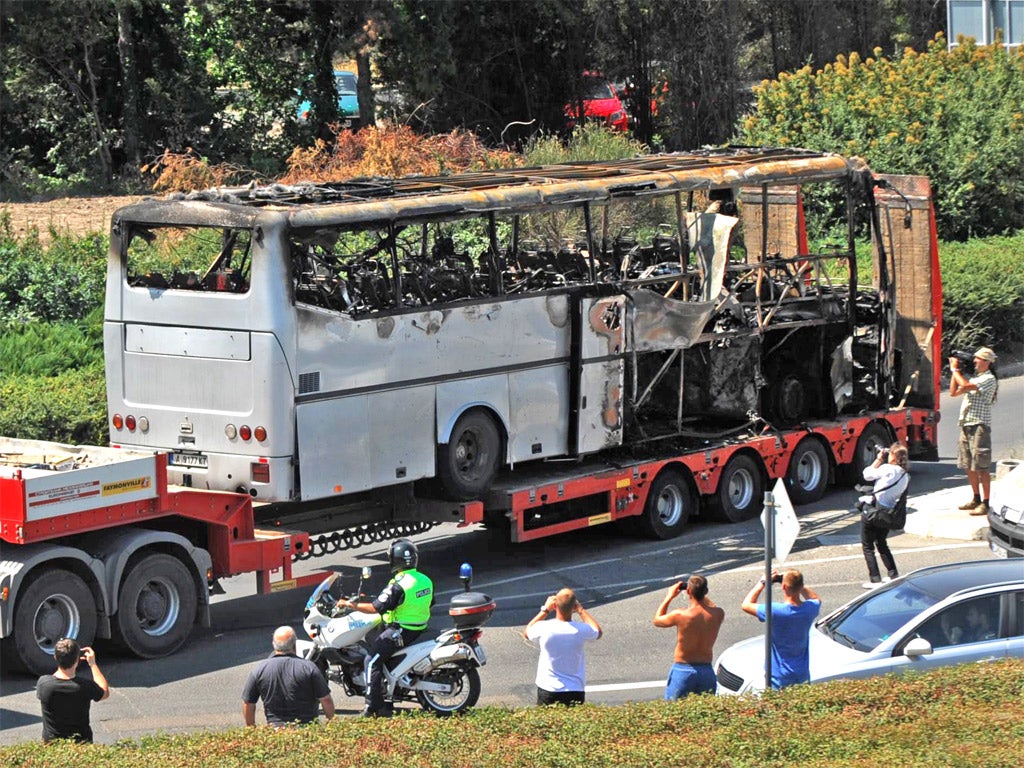UK bid to blacklist Hezbollah faces EU opposition
Move raises fears of instability in Lebanon while doubts persist over Bulgarian attack

A British attempt to blacklist the military wing of Hezbollah has run into opposition at the European Union, in part because of the mystery that continues to shroud a key investigation linking the Lebanese group to an attack in Bulgaria last year.
At a closed meeting in Brussels, Britain put forward the bombing in the Black Sea resort of Burgas last July, in which five Israeli tourists, a Bulgarian driver and the bomber were killed, as a crucial part of its rationale for why the EU should designate Hezbollah a terrorist organisation.
But several EU countries raised questions over the evidence linking Hezbollah to the bombing, as well as concerns that blacklisting the Shia organisation could create instability in Lebanon, where the Shia militia is a major political and social force.
Although Israel blamed Hezbollah for the Burgas bombing, it took until February this year for the Bulgarian government to say there was a "justifiable assumption" that the Burgas bomber and two suspected accomplices were linked to the group.
Little evidence has been made public to support the claims. The two fugitive suspects are said to be a Canadian citizen, born in Lebanon, and an Australian. But their real names, current whereabouts and links to Hezbollah have not been released. The identity of the dead bomber is also unknown.
"An attack takes place and immediately all over the world, governments are saying it was Hezbollah," said Elena Pavlova, a Middle East analyst based in Sofia. "Yet, we have waited a year and still no one has given any proof."
Along with local journalist Ruslan Yordanov, she found al Qa'ida-linked martyrdom videos online, claiming responsibility a day after the bombing in Burgas. They wonder whether evidence pointing towards alternative perpetrators was deliberately ignored to meet the demands of Israeli and Western governments seeking an excuse to ban Hezbollah.
Bulgaria's former interior minister Tsvetan Tsvetanov, who was the public face of the investigation until his government resigned earlier this year, denies there was any pressure from international partners.
"If we were under pressure we would have made an announcement earlier, but we waited until we had enough proof," he said.
Bulgaria has previously said its investigators found two fake US driving licences used by the suspects, which it says were printed in Beirut.
This was enough to convince a reluctant German government to support the move to blacklist Hezbollah's military wing, which would move towards cutting off its fundraising activities in Europe. The conviction of a confessed Hezbollah operative in Cyprus in March, who was monitoring the arrival of Israeli tourists to the island, added to the pressure.
France agreed to support the move after Hezbollah announced last month that it was sending fighters into Syria to support the forces of President Bashar al-Assad.
Hezbollah has denied involvement in the Burgas plot, and the attempt to blacklist the group has brought heated responses from Lebanon. "Any listing of the group as a terrorist organisation will be considered as political provocation," Lebanon's acting foreign minister Adnan Mansour, who is seen as close to the Syrian government, said last week. "We know there are Israeli pressures practised on more than one international side in order to accuse Hezbollah of terrorism."
Enough doubts remain to make several EU governments uncomfortable about blacklisting the group, and the support of all 27 members is needed for the motion to pass.
With Lebanon already suffering spillover from the civil war in Syria, several EU governments will remain concerned that further instability is not the answer. "The issue of political and security consequences" was raised, one EU diplomat said. More discussions will be held in the next two weeks, with a decision possibly taken by the end of the month.
Join our commenting forum
Join thought-provoking conversations, follow other Independent readers and see their replies
Comments
Bookmark popover
Removed from bookmarks